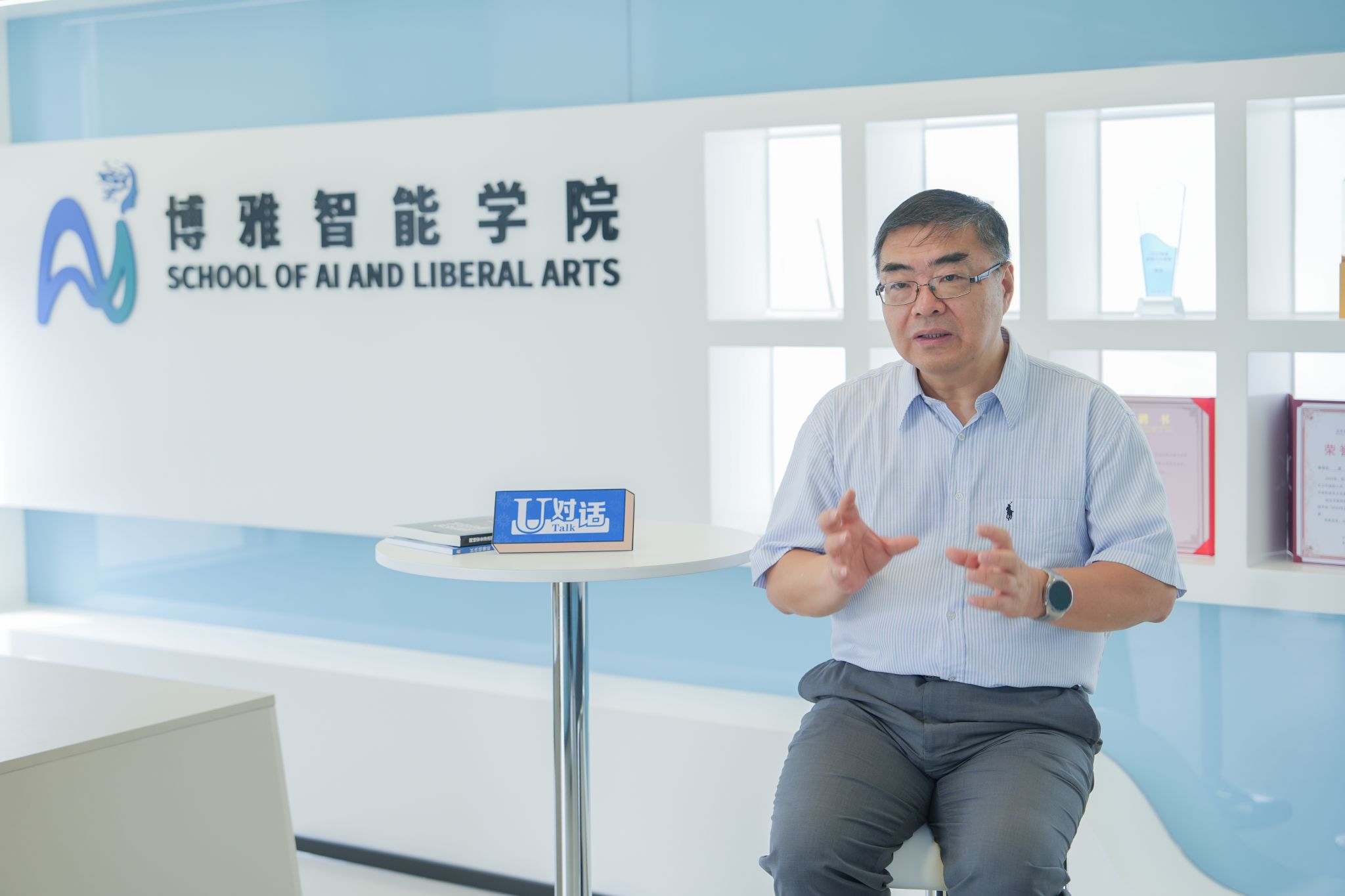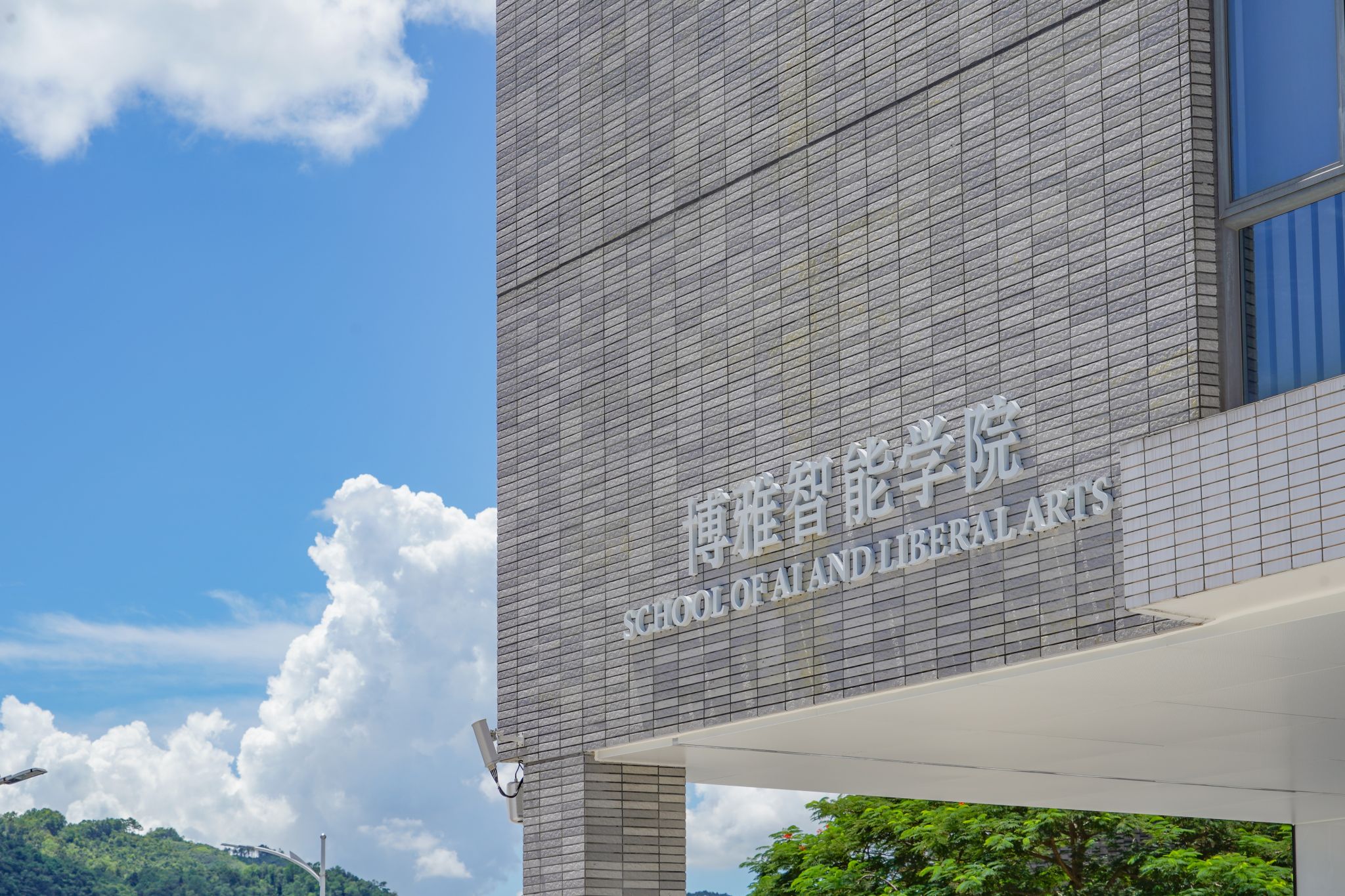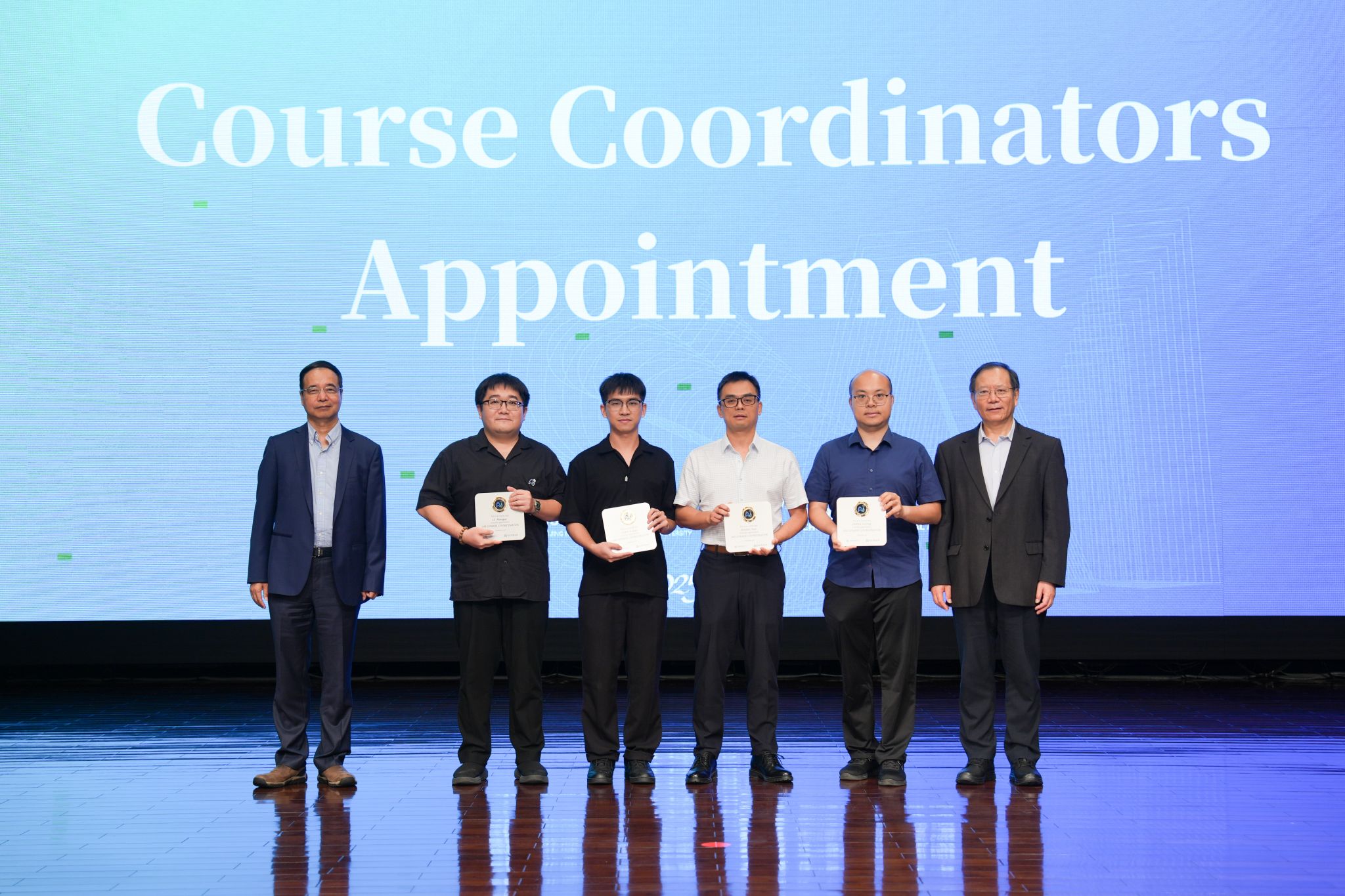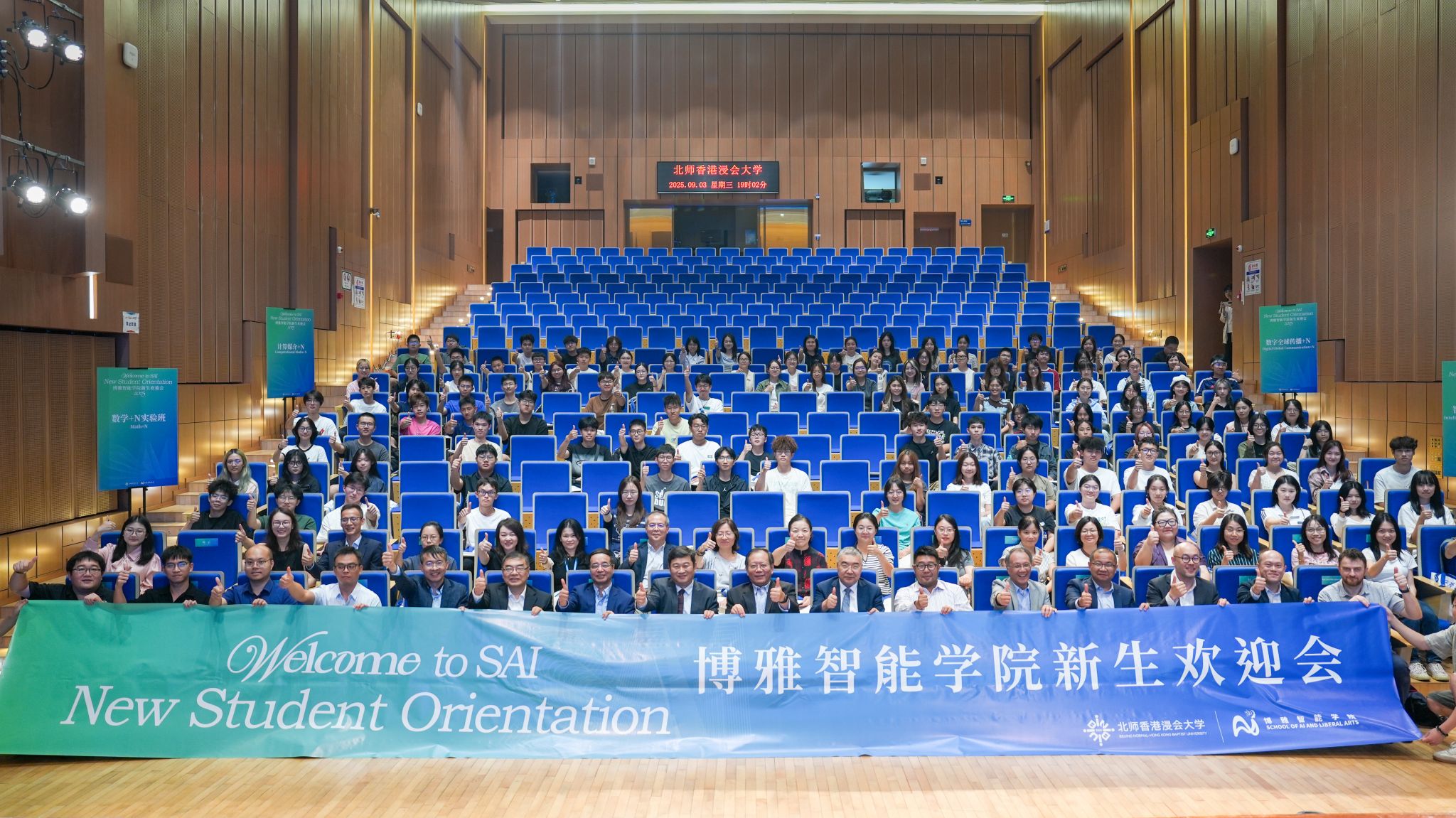As universities worldwide wrestle with how to respond to the rise of artificial intelligence (AI), Beijing Normal-Hong Kong Baptist University (BNBU) has already charted a new path: pioneering the deep integration of liberal arts education and AI by establishing the School of AI and Liberal Arts (SAI).
“My job was to find a good dean for us, and I think I’ve completed the mission well,” in September 2025, President Prof Chen Zhi smiled as he introduced Prof Chen Zhong, Dean of the SAI, at its Inauguration Ceremonies.
Prof Chen Zhong is a renowned scholar and educator in computer science, with over 30 years of teaching experience at Peking University. He is also a key figure involved in shaping national IT policy and strategy. Sharing the vision of integrating liberal arts with artificial intelligence, he has chosen to join BNBU.
A journey towards liberal arts
Prof Chen’s embrace of liberal arts stems from his diverse academic and professional journey. After completing his undergraduate, master’s and doctoral studies in 1989 at Peking University, he worked there for three decades and helped establish the School of Software and Microelectronics.
Later, he served as Chairman of the Computer Science Department. His time as a visiting professor at the University of California, Los Angeles, further deepened his conviction in the value of liberal arts and interdisciplinary education.
BNBU’s move to integrate liberal arts and AI draws Prof Chen to the Greater Bay Area. “This initiative will transform the future of higher education, and it's also an opportunity for me to contribute to this vision.” At the SAI, the vision is clear: to promote a dynamic cycle where “AI empowers liberal arts, and liberal arts, in turn, enrich AI”.

Prof Chen Zhong, Dean of BNBU's School of AI and Liberal Arts (SAI)
“The AI models are dysfunctional without data,” he explained further, pointing out that the development of AI models, no matter OpenAI or DeepSeek, is entirely dependent on vast databases of human knowledge.
“While some claim that publicly available online information is becoming scarce, a vast amount of valuable data remains untapped in specialised fields. Therefore, the SAI focuses on building a closer integration of AI-driven information processing capabilities with industrial knowledge.”
BNBU has already launched four interdisciplinary tracks: Intelligent Business Leadership+N, Digital Global Communication+N, Math+N, and Computational Media+N, along with the Faculty of Business and Management, the Faculty of Humanities and Social Sciences, the Faculty of Science and Technology, and the School of Culture and Creativity, cultivating interdisciplinary talents in the booming of technologies.
Equipping students for an uncertain future
Facing an era filled with uncertainties, AI pioneer Geoffrey Hinton once advised the young: “We’re at a point of history where we’ve got no experience of what’s to come, which is dealing with things smarter than us.” He urged people to arm themselves not with narrow skills, but with a quality liberal education that sharpens their thinking. Prof Chen agrees and stresses that information literacy and computational thinking will be essential for all students, regardless of their discipline.
“Improving information literacy means improving the ability to systematically acquire, process, and apply information with the right tools,” he said. In fact, every leap in tools has expanded human knowledge. He also emphasised that it is vital to cultivate an “information immune system” to guide us through the mist of fake news and falsehood.

BNBU's SAI
Computational thinking allows us to transform complex problems into computable ones. A great example of this is the 2024 Nobel Prize in Chemistry, which was awarded to three scientists for their work in computational protein design. “When we combine information literacy with computational thinking, we can turn traditional tasks into innovations powered by AI,” Prof Chen added, and that’s the core competency the SAI will instill in its students.
Together, make SAI better
The SAI aims to nurture future leaders with interdisciplinary expertise, innovative thinking, and ethical responsibility, empowering them to navigate and shape an AI-driven world for a better tomorrow. To achieve this, it has assembled a transdisciplinary faculty team, invited industry mentors, and created an open and inclusive environment that offers students rich opportunities for practice and application.
To further support students, the school has introduced course coordinators, who serve as academic partners, offering comprehensive guidance, academic support, and problem-solving assistance throughout their entire academic journey.

SAI's appoints its Course Coordinators
The school welcomed its first 120 students in September this year, selected from four different faculties and schools through an additional round of evaluation based on exams, awards, and overall quality. These students will embark on a four-year interdisciplinary journey, pursuing their original majors while receiving a liberal arts education deeply integrated with AI.

SAI welcomes its first batch of students this semester
“This is a wonderful starting point. In a sense, our teachers, staff, and students are all co-founders of this new venture,” Prof Chen noted and hoped that together they can embrace the spirit of innovation and entrepreneurship, boldly stepping into new fields and tackling challenges.
Looking ahead, the school will focus on strengthening foundational learning for its first-year and second-year students. “In their third year, we will connect them with more industrial and international resources for more interactions and applications.” BNBU has established its Boston Center and plans to establish more overseas bases, to offer students global opportunities for academic and career development.
Regarding postgraduate and doctoral training, the school plans to pave new ways in interdisciplinary talent cultivation, encouraging students to make original contributions in AI and its applications.
For all BNBU students interested in AI, elective courses will also be introduced, formatted into lectures, seminars, and practical sessions, fostering close interaction among faculty, students, and industry professionals.“We don’t just teach the knowledge,” said Prof Chen. “We want to inspire, because inspiration has the power to change lives.”
A new beginning awaits us. Prof Chen concluded in his remark: “This is more than a mere reformation of curriculum. This is a cultural transformation.” With a pioneering spirit, the SAI is working alongside its students and faculty to chart new paths for the future of learning.
From MPRO
Reporter: Cecilia Yu, Koga Song
Photographer: Season Li, Ji Zixuan
Video: Hanna He, Season Li, Cecilia Yu, Koga Song, Juan Rengifo

